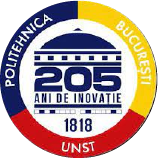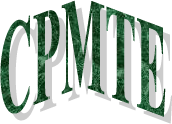About the project
The project aims the recycling of phosphorus from aviary litter ash as a substituting material of phosphate rocks. Project proposes a novel solution is proposed to produce P-rich concentrates from aviary litter ash. The full understanding of the new product cycle are ensured by a stakeholder industrial unit and the research team expertise covering the value chain from the aviary litter to the P-concentrates. Samples from different origins and thermal conversion conditions from the EU countries, Turkey and Brazil will be characterized and compared, including also samples of phosphate rock concentrates from Brazil. Before carrying industrial scale thermal conversion trials, the aviary bedding properties and a selective collection will be made at “Campoaves” (Portugal) to obtain aviary litter P-rich ashes. After, lab scale (Poland and Turkey) and full scale (Portugal) thermal conversion trials will be done to optimize the P-bearing materials for the production of fertilizers. These are trials to be jointly carried by the thermal conversion experts of the consortium (Turkey, Sweden and Poland) to compare the different processes (pyrolysis, fixed bed and fluidized bed combustion, etc.), and to build a process model/flowsheet based on heat and mass balance. By using a combination of advanced techniques for the characterization of the ashes and P-concentrates the French team will carry crystal chemistry studies. These results will be crucial to optimize the product in relation to the production of liquid and/or solid phosphate concentrates, and will determine the thermal conversion conditions. Beneficiation trials of the ashes are expected to produce P-concentrates and reduce the amount of impurities and final residues (Si glass and unburned carbon) and increase the efficiency of the extraction (by acidification) process. These trials should be carried (Portugal). Concentration and purification of the ashes and ashes P-rich concentrates trials for the production of liquid and/or solid phosphate concentrates and product modification in an optimal way to ensure its safe application (Poland and Italy). Such material will eliminate aviary litter ash landfilling and increase in short-time its economic value making it more attractive to substitute phosphate rocks, and contributing with positive environmental impact to the sustainability of the food production due to the growing population that is estimated by the United Nations to be 9,7 billion persons by 2050. However, the “zero waste” aim is a derivative scientific objective, in line with the EU Directive 96/ 61/ EC, and these experiments should be followed by the characterization and the assessment of the unburnt carbon to be use as adsorbent and reducing agent (Romania and Sweden) and silica glass as slag modifier (Sweden and Italy), and evaluation of the sustainability of the new proposed strategies, in terms of embodied energy and carbon footprint (Italy, Romania, and Poland).
Project objectives
DEASPHOR creates a driven research network between 10 partners from 8 countries (Portugal-2, Romania-1, Poland-2, Brazil-1, Sweden-1, Turkey-1, France-1, Italy-1) to achieve sustainable secondary resources supply under “EU initiative of Raw Materials” for the recovery and recycling of phosphorus (P) from poultry litter ash since the direct utilization of poultry litter has eight times more P than plants need. P-concentration is needed to make poultry litter capable of substituting phosphate rocks. Research is vital to explore P-recycling from poultry litter ash in Europe Union, Brazil and Turkey, with an ore grade close to that of phosphate rocks. The project’s objectives of UPB aims to demonstrate, by a detailed applied investigation, the technical feasibility to utilize poultry litter ash as a substitute of phosphate rocks used in the P-based fertilizers. The proposed approach, will involve utilization of regular and complex physical-chemical methods for characterization, laboratory technologies to develop recovery processes and transform phosphorus from poultry litter ash into a high-value material with various application. This creates the possibility for the substitution of natural phosphate rocks. The project also has a secondary objective related with the assessment of C material to produce adsorbents/ catalysts to be used in the separation of gases or liquids and water treatment; and, residual oxide compounds (Si material) for silica gel. Environmental evaluation in terms of embodied energy and carbon footprint will be done by UPB that will propose new strategies in this respect.
Project results
The UPB project partner expects to achieve results to be provided to the other partners to use them as a precursor material to produce P fertilizers, C material to produce adsorbents/ catalysts to be used in the separation of gases or liquids and water treatment and, Si material for silica gel. The environmental impact in terms of soil, landscape, raw material saving, embodied energy of materials used, and decreasing CO2 footprint will be evaluated.

